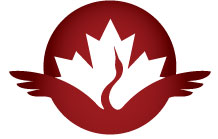[From time to time CanKor will alert our readers to papers published by our partner-site 38North. The following article is authored by Andray Abrahamian, a freelance writer on Korea issues. He teaches in the Social Science College at the University of Ulsan in South Kore while working towards completing his doctoral dissertation on contemporary Orientalism and western images of North Korea. He holds an M.A. in International Relations from the University of Sussex, where he focused on Realist and Critical Theory approaches to East Asian relations. Please follow our links to this article on the 38North site. –CanKor.]
The Road to Rason By Andray Abrahamian
 Pictured to the right (Google Earth via NKeconwatch.com): Rason geographic border (in red) and security perimeter fence (in yellow).
Pictured to the right (Google Earth via NKeconwatch.com): Rason geographic border (in red) and security perimeter fence (in yellow).The passengers of the humvee—part of the casino’s fleet—will long be checked in and gambling their fortunes away by the time we complete our two and a half hour journey. However, it won’t always be this way. Rason’s 50km road to the border is finally being upgraded. Indeed, the 2.5 hour journey took 3.5 hours in June. Since then, the road has been widened, the first stage of the construction plan, allowing for traffic to flow both directions more easily and smaller passenger vehicles to overtake the more cumbersome truckers who ply the road. …Read More


 The Libyan story seems to be over, at least for now. We do not exactly know who is going to rule that country next and with what consequences. There is room for experience-based pessimism, but only time will tell. So it is now worth looking closer at another of the anti-dictatorship uprisings in the region. What is the meaning of Syria for North Korea?
The Libyan story seems to be over, at least for now. We do not exactly know who is going to rule that country next and with what consequences. There is room for experience-based pessimism, but only time will tell. So it is now worth looking closer at another of the anti-dictatorship uprisings in the region. What is the meaning of Syria for North Korea?
 A picture of a woman dressed in a western suit walking down a city street would usually be of little interest. But when that street is in Pyongyang, imaginations tend to run wild, contemplating what the image may reveal about North Korea’s closed off society. (Photo: Irina Kalashnikova)
A picture of a woman dressed in a western suit walking down a city street would usually be of little interest. But when that street is in Pyongyang, imaginations tend to run wild, contemplating what the image may reveal about North Korea’s closed off society. (Photo: Irina Kalashnikova)
